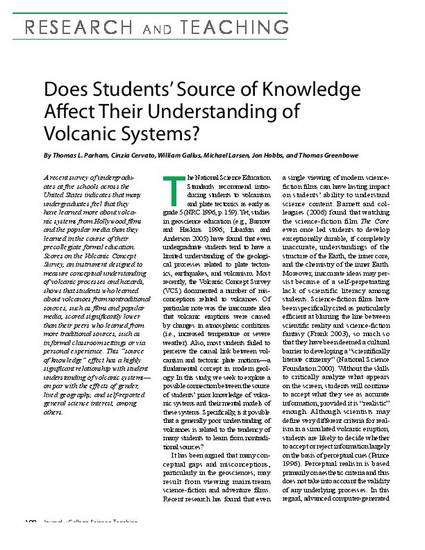
A recent survey of undergraduates at five schools across the United States indicates that many undergraduates feel that they have learned more about volcanic systems from Hollywood films and the popular media than they learned in the course of their precollegiate formal education. Scores on the Volcanic Concept Survey, an instrument designed to measure conceptual understanding of volcanic processes and hazards, shows that students who learned about volcanoes from nontraditional sources, such as films and popular media, scored significantly lower than their peers who learned from more traditional sources, such as in formal classroom settings or via personal experience. This “source of knowledge” effect has a highly significant relationship with student understanding of volcanic systems— on par with the effects of gender, lived geography, and self-reported general science interest, among others.
Available at: http://works.bepress.com/cinzia_cervato/15/

This article is from Journal of College Science Teaching 41 (2011): 14. Posted with permission.